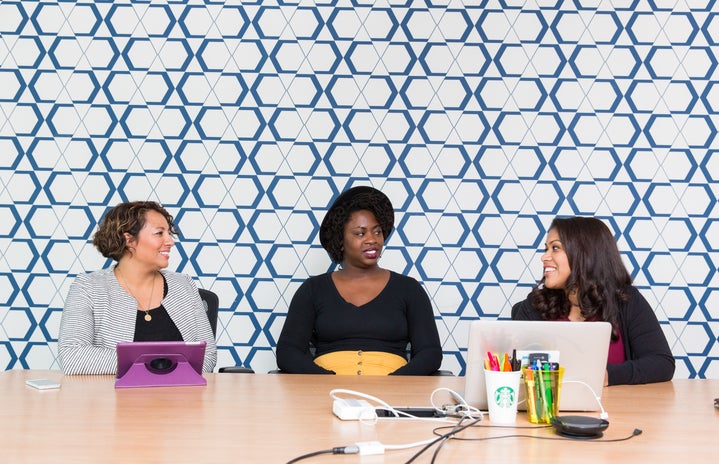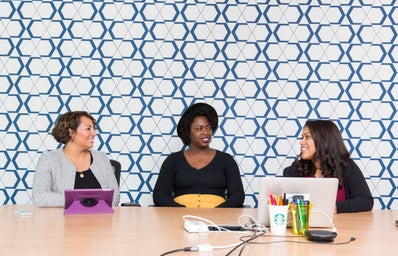For non-disabled people, engaging in conversations surrounding ableism and discrimination is important. With that being said, there’s a major caveat:
It’s hard to know what to say or how to say something in every situation.
Starting these tough conversations can be scary. However, there are a few easy replacements you can make to your language right now that will seriously upgrade your conversational abilities, equipping you with knowledge on how to say the right things and engage meaningfully. There are five easy swaps related to disability language that you can make.
1. Say “autistic person,” not “person with autism”
This swap doesn’t just go for autistic people; there’s rising consensus in the disability community about “identity-first language” or using a disability as a descriptor instead of a noun. In most cases, opt for saying handicapped person, autistic person, or disabled person instead of the alternative. If you’re unsure, just ask what that person would prefer!
2. Say “intense,” “damaging,” or “scary,” not “crippling”
When you use the words cripple or crippling, it can often act as a microaggression since the word used to be a cruel diagnosis but is usually used in a non-disability setting (e.g. crippling debt). Because of its roots as a slur, substitute it for words like overwhelming, intense or bad. The meaning of your statement (e.g. overwhelming debt) is not lost, and you’ve successfully avoided using an aggressive term in a not-so-aggressive statement.
3. Say “disabled,” not “differently-abled”
The phrase “differently-abled” arose to replace the word handicapped. However, many disabled people really hate it—what does differently-abled even mean?! The term disabled doesn’t mean “lesser,” but differently-abled not only implies that the word disabled is bad, but is not encompassing of most disabilities. Professor Stephen Stern at Gettysburg College puts it best: “I am learning disabled. I am not ‘differently abled.’”
4. Say “non-disabled,” not “normal”
When you reference a non-disabled person as a “normal” person (e.g., she is normal, unlike her disabled partner) you create a new meaning to the word disabled that is “less than normal” or abnormal. Instead of the rift being between what is normal and what is not, shift to disabled versus non-disabled. No one is *actually* normal anyways.
5. Finally, don’t use “OCD,” “depressed,” “crackhead,” or “spaz”
It’s easy to describe ourselves as OCD or having “crackhead energy” to come across as relatable or funny; but for people actually struggling with these disorders and disabilities, it plays out as mockery or insensitivity. Instead of describing your organizational skills as OCD, describe them as just that—organized. Instead of saying “crackhead energy,” describe yourself as being high-energy, wild or eccentric. Disabilities shouldn’t be used as adjectives for everyday quirks or traits and using them as such minimalizes the not-so fun reality of people struggling.
In the end, the most important thing to remember is that starting the conversation is the most important step towards equity for disabled people. Mistakes happen and knowing every little thing about word choice is impossible. But it’s only with personal change that we can initiate big changes in society—big changes that start with little words.

